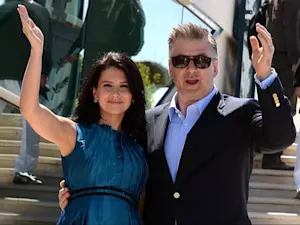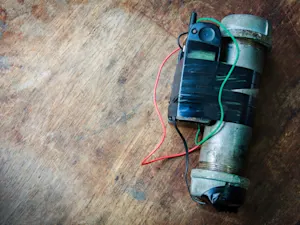
Former French President Sentenced to 5 Years in Prison
Nicolas Sarkozy, 2008. Photo courtesy of Aleph under CC BY-SA 2.5.
In a landmark decision on September 25, 2025, Nicolas Sarkozy, the former president of France, was sentenced to five years in prison for criminal conspiracy related to alleged illegal funding from Libya during his 2007 presidential campaign. This ruling marks an unprecedented moment in modern French history, as Sarkozy becomes the first former head of state required to serve jail time — even while appealing the verdict.
A Historic Verdict and Its Implications
The Paris court's decision shocked many, not only because of the sentence's severity but also due to the fact that Sarkozy's imprisonment will begin despite his intention to appeal. The court also imposed a €100,000 fine (about $117,000) on the former leader, underscoring the gravity of the offenses.
Sarkozy was found guilty of criminal conspiracy in a scheme that allegedly involved securing millions of euros from Libyan leader Muammar Gaddafi to finance his successful 2007 campaign. The court described this as a "corruption pact" between Sarkozy's team and the Libyan regime, which sought diplomatic and business favors in return for financial support, as reported by the Associated Press. This included discussions about Libya's nuclear power ambitions and efforts to rehabilitate Gaddafi's international image, which had been tarnished by his regime's association with terrorism.
The Role of Key Aides
The ruling did not stop with Sarkozy. Two of his closest aides, Claude Guéant and Brice Hortefeux, were also found guilty of criminal conspiracy. Guéant, who served as Sarkozy's chief of staff and interior minister, received a six-year prison sentence, though he was not immediately incarcerated due to health reasons. Hortefeux, another former interior minister, was sentenced to two years, with the possibility of serving time under electronic monitoring.
The court highlighted that these aides held secret meetings with Libyan officials, including Abdullah al-Senoussi, Gaddafi's brother-in-law and intelligence chief, to negotiate the illicit funding. These contacts were part of a broader effort to secure financial backing while promising political favors, a scheme the court deemed "exceptionally serious" and capable of undermining public trust in institutions, as reported by the Associated Press.
Sarkozy's Response and Legacy
Sarkozy, who led France from 2007 to 2012, vehemently denied wrongdoing throughout the trial and called the verdict an injustice and a "scandal," as reported by The Guardian. He vowed to appeal the decision but accepted the reality of serving time if required, stating he would do so with his head held high.
This conviction adds to a series of legal troubles that have shadowed Sarkozy since leaving office. In 2021, he was convicted of corruption and influence peddling for attempting to bribe a judge, a case that resulted in a one-year prison sentence served under electronic monitoring. He was also found guilty of illegal campaign financing in his failed 2012 reelection bid, a verdict he is currently appealing.
Despite these setbacks, Sarkozy remains an influential figure in French politics, maintaining connections with key right-wing leaders, and even advising the current prime minister. His wife, Carla Bruni-Sarkozy, a former model and singer, stood firmly by his side throughout the trial and after the sentencing, sharing a message of love and resilience on Instagram, as reported by Reuters.
The Broader Context: Corruption and Influence in French Politics
The Sarkozy case shines a harsh light on the entanglement of money, power, and politics in France. The alleged Libyan funding scheme dates back to 2011 when reports surfaced that Gaddafi's regime had funneled millions into Sarkozy's campaign. Investigations revealed a complex web of secret meetings, forged documents, and witness testimonies that painted a picture of systemic corruption.
One notable figure in the saga was Ziad Takieddine, a Franco-Lebanese businessman who claimed to have delivered suitcases of cash from Libya to Sarkozy's team. Although he later retracted his statement, his death in Beirut just days before the verdict added a dramatic twist to the proceedings and fueled speculation about witness tampering.
The court's ruling emphasized that under French law, a corrupt scheme can be criminal even if the actual transfer of money cannot be conclusively proven. This legal nuance allowed the judges to convict Sarkozy and his associates based on the conspiracy and intent, rather than direct evidence of funds changing hands,
What This Means for France and Beyond
Sarkozy's sentencing is more than a personal downfall; it is a watershed moment for French democracy. It sends a clear message that no one, not even a former president, is above the law. The decision may also encourage greater scrutiny of political financing and corruption, both in France and internationally.
As Sarkozy prepares to face his sentence, the political and legal reverberations will continue to unfold. His appeal process will be closely watched, but the precedent has been set: even the most powerful can be held to account.
Conclusion
Nicolas Sarkozy's five-year prison sentence for criminal conspiracy linked to alleged Libyan campaign funding marks a historic first in France. The ruling, which also implicates key aides and imposes a hefty fine, underscores the seriousness of corruption allegations that have long plagued French politics. While Sarkozy maintains his innocence and plans to appeal, the court's decision reflects a firm stance against political corruption and a commitment to justice that resonates far beyond France's borders.
References: Nicolas Sarkozy, Former President of France, Sentenced to 5 Years in Jail | France's Nicolas Sarkozy sentenced to five years in prison for Libya campaign funding scheme | Sarkozy says he will 'sleep in jail but with head held high' after conviction | French model and singer Carla Bruni stands by her man after Sarkozy jail sentence























